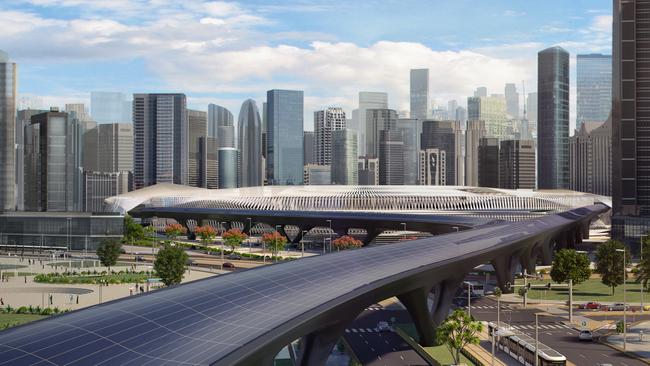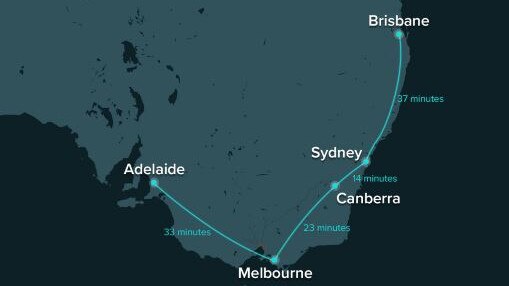Hyperloop experts believe technology a good fit for Australia
Hyperloop transport technology could be the answer to regional intercity travel along Australia’s east coast as the population booms. See how quickly the hi-tech trains could reach their destination.
VIC News
Don't miss out on the headlines from VIC News. Followed categories will be added to My News.
Commuters would be able to travel between Melbourne and Bendigo within 15 minutes if Australia embraced Hyperloop transport, according to experts behind the futuristic technology.
Speaking in Melbourne this week, representatives from Virgin Hyperloop One have spruiked the potential of the project to answer lingering questions about the future of fast rail along the east coast.
Hyperloop One’s director of product management, Sara Luchian, said the technology was ideal for Australia’s geography and population growth.
“There are nine states in the US interested in exploring Hyperloop but there’s still space for Australia to be an early adopter,” she said.


“You have massive population centres with very expensive houses and vast distances to traverse in between.
“This system can dramatically change the possibilities of regional intercity travel … The number of car is set to double over the next 20 years so we need new solutions to fight congestion.”
Ms Luchian is in Australia to speak at the Know the Future event held at Mercedes Me in Melbourne’s CBD.
Hyperloops cut travel time by creating a near-vacuum tube for pods to travel through and are believed to capable of reaching the speed of sound.
MORE NEWS
LOVE MATCH WITH AN AGE GAP STIRS UP A STORM
TEENS FILM GIRL’S BRUTAL BASHING
TRAINER SET TO QUIT AFTER CHARGES REVEALED
If built in Victoria, passengers would be able to get to Geelong in under 10 minutes.
“It offers the opportunity to live somewhere affordable and turn a massive commute into a short journey,” Ms Luchian said.
“Right now we’re looking for complete regulatory certification with the exsection to launch passengers by the late 2020s.
“This is technology that is coming in years rather than decades.”
